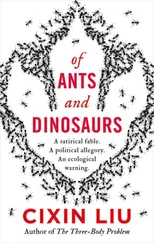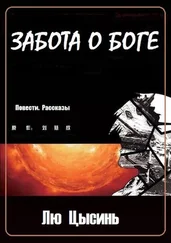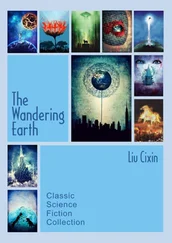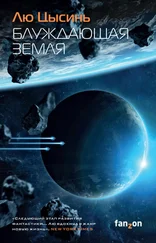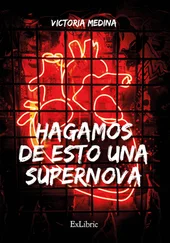Out the window is a swath of verdant grass adorned with the pale yellow cottages of the immigrant village. Beyond them—god, don’t look out there—is nothing but desert, a red desolation frequented by raging dust storms that blot out the dim red sky and the sun that provides little heat in the first place.
Such a god-awful place. Such a god-awful place!
“You said that when you finished the book, you’d watch the kid,” Verené says.
I say I’m writing the afterword. I’ll be done soon.
“It’s all a waste of energy. Too fringe to be proper history, and too realistic to be fiction.”
She’s right. That’s what the book agents said, too. But what can I do? It’s the current state of historiography that’s landed me in this dilemma!
It’s my misfortune to be a superhistorian in this era. A little over three decades into the Supernova Era, the period has been the focus of a mountain of research, putting it well beyond the scope of historiography and into a sort of sensationalized commercialism. Book after book, most just playing to the crowd. A few of the duller so-called historians even parcel out the three decades into smaller periods, measured by the day and more numerous than the dynasties of the Presupernova period, and publish studies for each to rake in the cash.
* * *
Most historians of the Supernova Era currently follow one of two major schools of thought, alternate history and psychology.
The alternate history approach is currently in vogue. This school poses historical hypotheses. What if, for example, the supernova rays were a bit stronger and killed off everyone over the age of eight? Or a bit weaker and allowed anyone under twenty to survive? What would that have done to the history of the Supernova Era? If the Supernova War had been fought not as games but as conventional battles in the Common Era meaning of the term? So on and so forth.
The school had its reasons for being: the outbreak of the Supernova War brought humanity to the understanding that from a cosmic perspective there is an element of randomness to the march of history. In the words of noted alternate historian Dr. Liu Jing, “History is a little tree branch carried along a stream. It might whirl in an eddy for a while, or get caught on a rock poking above the surface, or any number of other possibilities. For history as a discipline to study just one of those possibilities is as ridiculous as playing cards with a deck consisting entirely of aces.”
The development of this school is tied to the proof in recent years of the parallel universe theory, whose far-reaching implications for all disciplines, history included, are only beginning to be felt.
I won’t deny that there are a few serious alternate historians, such as Alexander Levenson ( The Direction of the Section ) and Matsumoto Taro ( Unlimited Branching ), whose research uses a unique perspective on another potential pathway as a way to expound an innate law of actual history. These scholars have my respect; that their work has been ignored is historiography’s tragedy. On the other hand, the school has provided a wonderful stage for showy crowd-pleasers who are far more interested in alternate history than in the real thing, and for whom the name “historian” is less appropriate than “alternate history novelist.”
The aforementioned Liu Jing is their chief exponent. She pops up in the media these days flogging her fifth book, for which she was reportedly paid an advance of 3.5 million Martian dollars. From its title, The Big If, you can pretty much guess at the contents. Liu Jing’s father from back in the Common Era must be mentioned in any discussion of her scholarship, not, I assure you, because I’m trying to make a bloodline argument, but simply due to the fact that Dr. Liu has repeatedly acknowledged her great father’s influence on her academic approach. I feel I ought to understand him a little. This has been no easy task. I scanned through materials from the Common Era and searched through all the ancient databases I could find, but came up with nothing.
Fortunately, Liu Jing was Verené’s graduate advisor, and so I had her ask Dr. Liu directly. I learned as a result that Liu Jing’s nobody of a father, Liu Cixin, had written a few science fiction stories back in the Common Era, most of them published in a magazine called SFW (I checked this out; Science Fiction World was a previous incarnation of the Precision Dream Group that has a monopoly on hypermedia arts on two worlds). Verené even brought back three of his stories. I got halfway through the first one and had to throw it away; what utter trash! The whales in that story even grew teeth! Under the influence of a father like that, it’s no wonder Liu Jing has the attitude toward scholarship and the methods she does.
The psychological school of superhistory is a far more serious pursuit. Its adherents believe that the great divergence in the Supernova Era from the track of prior human history was due to child psychology in SE society. In Germ Cell Society, Von Svensker systematically expounds on the unique implications of the family-free society at the start of the era; Zhang Fengyun goes further in the somewhat controversial Asexual World, providing a sober yet brilliant analysis of a society in which sex is basically absent. But to my mind, the psychological school is built atop a shaky foundation, for in actual fact, the psychological state of SE children was entirely different from that of CE children. In some ways they were far more naïve, but in other ways they were more mature than even CE adults. Whether SE history created this psychology or vice versa is a true chicken-and-egg question.
A few serious scholars who do not adhere to any school have made valuable contributions to superhistory. In Classroom Society, A. G. Hopkins provides a comprehensive study of the forms of government in the children’s world. This monumental work was attacked from many sides, mostly on ideological grounds rather than for any questions of scholarship, which, given the scope of the book, is hardly surprising. Yamanaka Keiko’s Raising Oneself and Lin Mingzhu’s A Candle in the Cold Night are two books on the history of SE education that, despite being a bit heavy on sentimentality, nevertheless have value as comprehensive, objective historical documents. Zeng Yulin’s magnum opus To Sing Again is a rigorous yet poetic systematic study of the art of the children’s world, and one of the few works of superhistory with both critical and popular appeal. The results of these scholars’ research must still stand the test of time, but their research itself is serious, at least compared to the stuff in The Big If ….
“You lose your cool whenever you mention my advisor,” Verené says, looking over my shoulder.
Can I keep cool? Can Liu Jing? My book’s not even published, and already she’s mocking it in the media as “unfictionlike fiction, reportage that doesn’t report, ahistorical history. It’s unclassifiable.” An attempt to bolster oneself by belittling others will in no way have a positive effect on the academic climate of superhistory that’s polluted already.
I wrote this way out of desperation. A prerequisite for historical research is to let history cool down first, but has the Supernova Era cooled down in thirty-odd years? Not one whit. We are the witnesses to that history, and the terror of the supernova, the loneliness of the Epoch Clock running out, the torpor of Candytown, the great tragedy of the Supernova War, all of it is deeply imprinted in our minds.
Before migrating here, I lived beside the railroad tracks, and every night I was tormented by nightmares in which I was running through the wilderness in the dark surrounded by terrifying noises—floods, earthquakes, the howls of hordes of giant beasts, the thunder of nuclear bombs. And then one night, I awoke with a start from that nightmare and dashed to the window. No stars, no moon, only the Rose Nebula shining over the land, and a night train making its slow passage. Can one do research at a theoretic level in such a state? No, we lack the dispassionate detachment that theoretic research requires. It will need to wait until there’s enough distance between the early Supernova Era and the researchers, which may leave it in the hands of the next generation. All our generation can do is descriptive writing, giving our descendants records of the period from the perspective of eyewitnesses and of historians. That is all that superhistory can do for the time being, in my opinion.
Читать дальше
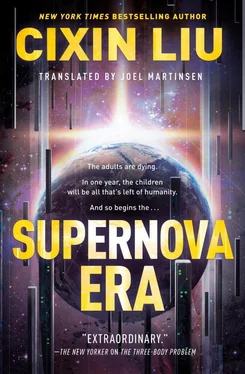
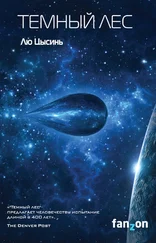
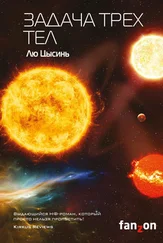
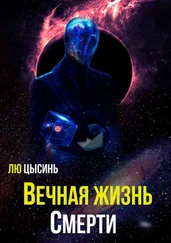
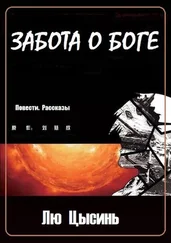
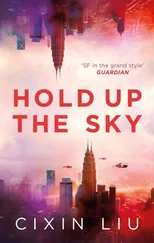
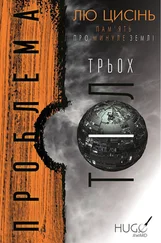
![Лю Цысинь - Эпоха сверхновой [litres]](/books/393110/lyu-cysin-epoha-sverhnovoj-litres-thumb.webp)
